“What do worms eat?” is the first question on every beginner worm farmer's mind. If you are looking to add worm farms in your homestead then here is everything you need to know about what worms eat.
RELATED: Worm Farm Kit: Essential Supplies Every Beginner Should Have
In this article:
- What to Feed Worms
- What Not to Feed Worms
- When to Feed Worms
- How to Feed Worms
- How Much Food Should Worms Eat
What Do Worms Eat? | FAQs
What to Feed Worms
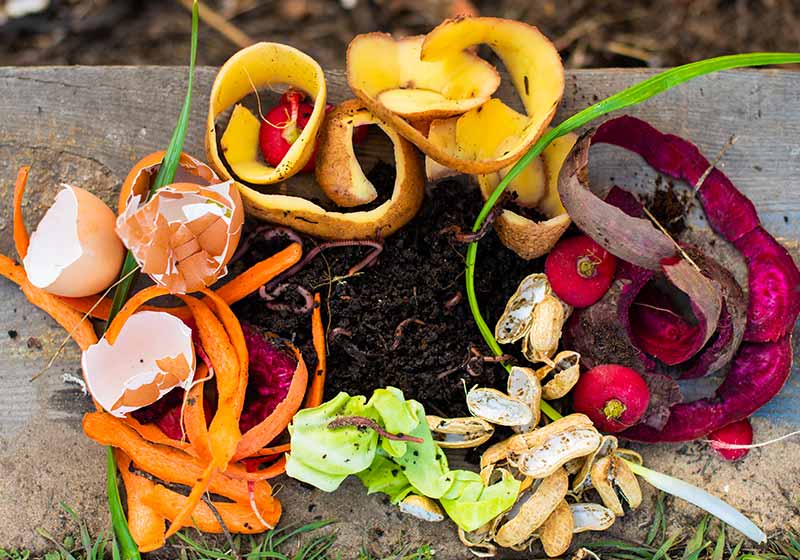
While there are things worms will not eat entirely, others are unhygienic and inappropriate to throw into your worm farm. Vermicomposting worms will thrive on selected plant-based and other organic wastes.
A vegetarian diet, fruits, wheat products, cooked vegetables, coffee grounds, and grains contain the nutrients composting worms need to remain healthy. This will enable them to produce quality worm casting fertilizer.
Aside from plant matters, paper tea bags, soaked unprinted cardboards, shredded newspapers, and organic eggshells will provide your composting worms with calcium – a vital mineral to keep them healthy.
As a general rule, feed your worms organic materials that break down quickly. Worms do not have teeth and will only feed when food material starts to break down.
Reminder: To aid this process, cut the food substances into small pieces, and add moisture to keep it soft.
What Not to Feed Worms
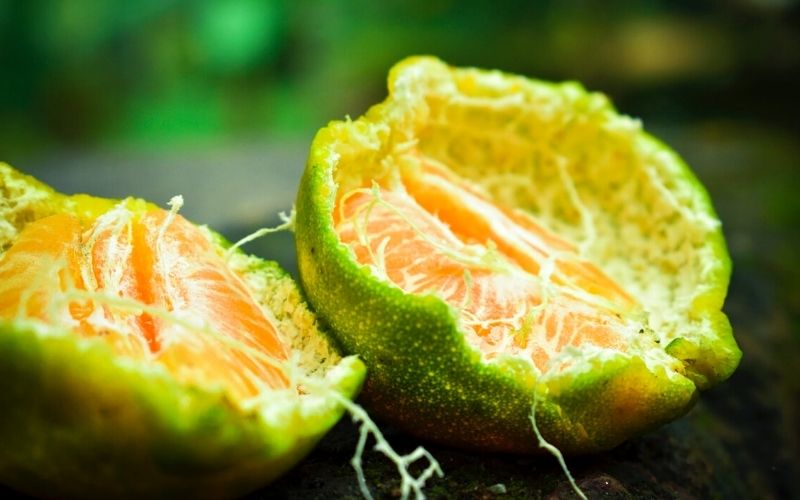
Steer clear of acidic fruits and vegetables. These will disrupt your worm farm's pH, which is not conducive to the worms.
Also, remove any meat from your food scraps. Aside from attracting vermins that will endanger the worms, animal protein takes longer to break down.
Garden waste such as grass clippings is also not ideal. Aside from being toxic due to chemical treatments, they break down slowly and generate a lot of heat which can kill the worms.
Unlike newspapers, bleached papers are toxic and will harm the worms as well.
Additionally, do away with dairy and greasy products as they become rancid as they break down.
Fruit pits and plastic contaminants will not break down. More likely, they will injure your worms. instead
Lastly, keep any form of animal manures away from your worm bin. Most homestead animals are dewormed using vermicides which they pass into fresh manure. Cattle manure may also contain a lot of urea and salt.
Reminders:
- Use regular compost bins to breakdown your garden waste like hedge cuttings and wood clips.
- Instead of feeding animal manure to your worms, compost it first to make fertilizer.
- Go for a bokashi bin to compost various types of meat instead.
RELATED: How To Start Your Own Worm Composting Bin
When to Feed Worms
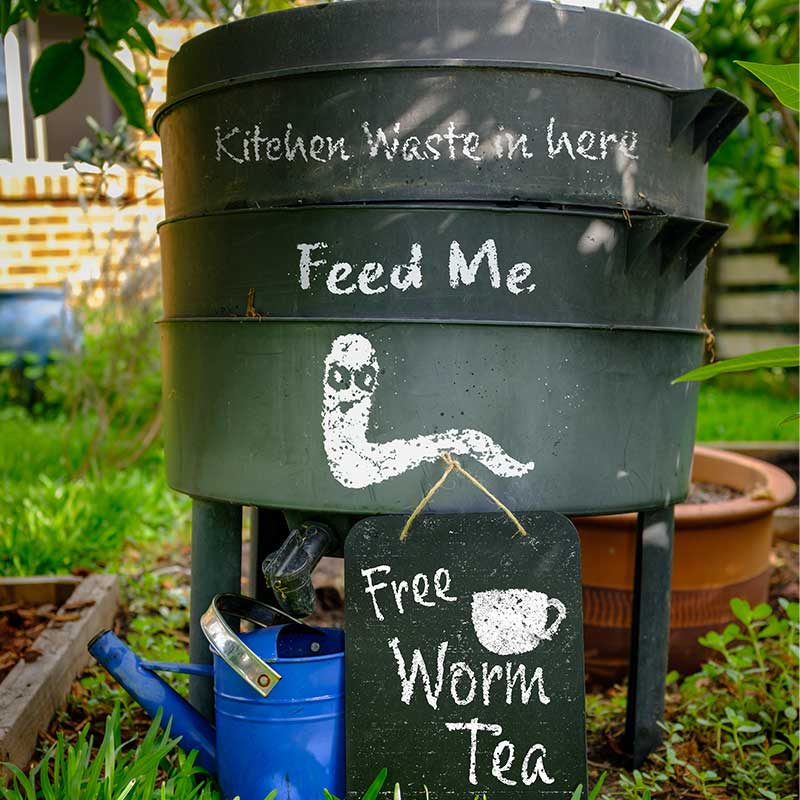
To know how often you should feed your worms, examine the area you fed the worms last. If the worms are into the food in huge numbers, it is time to provide food again.
Waiting until there is no food left in the bin will starve them because they have to wait for the food to begin breaking down before they can feed.
Tip: Feed the worms small amounts of food and regularly check to see if you need to add more.
How to Feed Worms
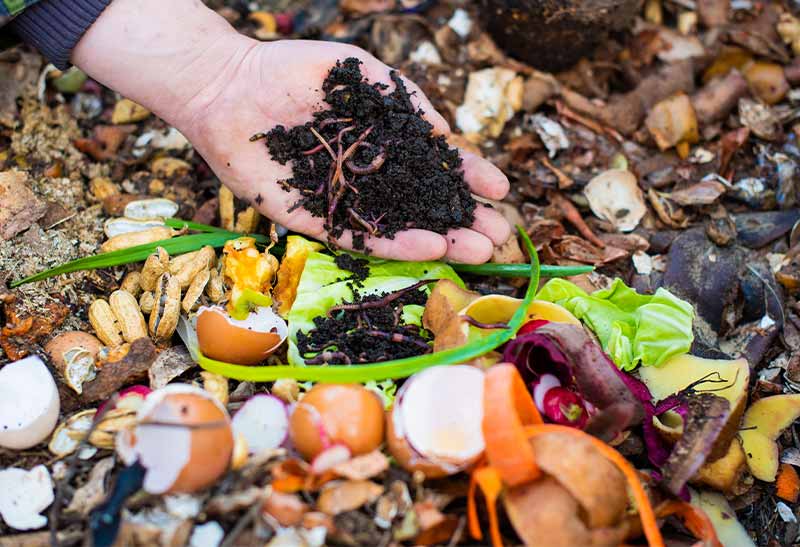
How you feed your worms is as important as what you feed them. Place the food scraps just beneath the covering. Unlike garden worms, compost worms do not burrow into the soil.
Start with a small amount of food and then add more when the worms start feeding.
Reminder: Only cover half the surface with food so that the worms have space to escape to in case they do not like the food you put in.
How Much Food Should Worms Eat
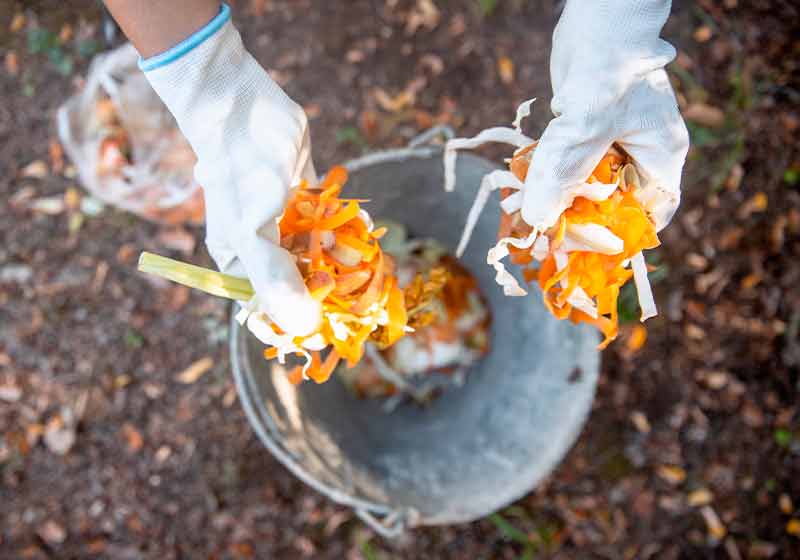
Feed your composting worms daily but be careful not to underfeed them. Composting worms can consume as much as their body weight.
Therefore, if you have a kilogram of composting worms, then they will consume up to a kilogram of food scraps daily.
Reminder: Overfeeding the worms or putting too much food will only cause the food to rot, which is not the ideal habitat for worms.
Watch this video from Nature's Always Right on what to feed worms:
There you go, homesteaders! Worm farming is more fun when you feed your worms right. Keeping your worm farm healthy doesn't have to be complicated.
Happy worm farming!
Which composting worm breeds do you have on your farm? Let us know in the comment section below!
UP NEXT:
- Vermicomposting | Fertilize With Worm Castings
- The Essential Benefits Of Worm Farming | Homesteading For Beginners
- How To Get Rid Of Flies | 13 Natural And Homemade Fly Repellents
Fellow homesteaders, do you want to help others learn from your journey by becoming one of our original contributors? Write for us!

Interesting read! I never knew that worms are such efficient recyclers and can help improve soil health. Thanks for sharing this informative post on worm farming!
please stop commenting on this website.
this is epic
Worms feed on decaying leaves, grass clippings, twigs, and other plant debris found on the surface of the soil or in compost piles.